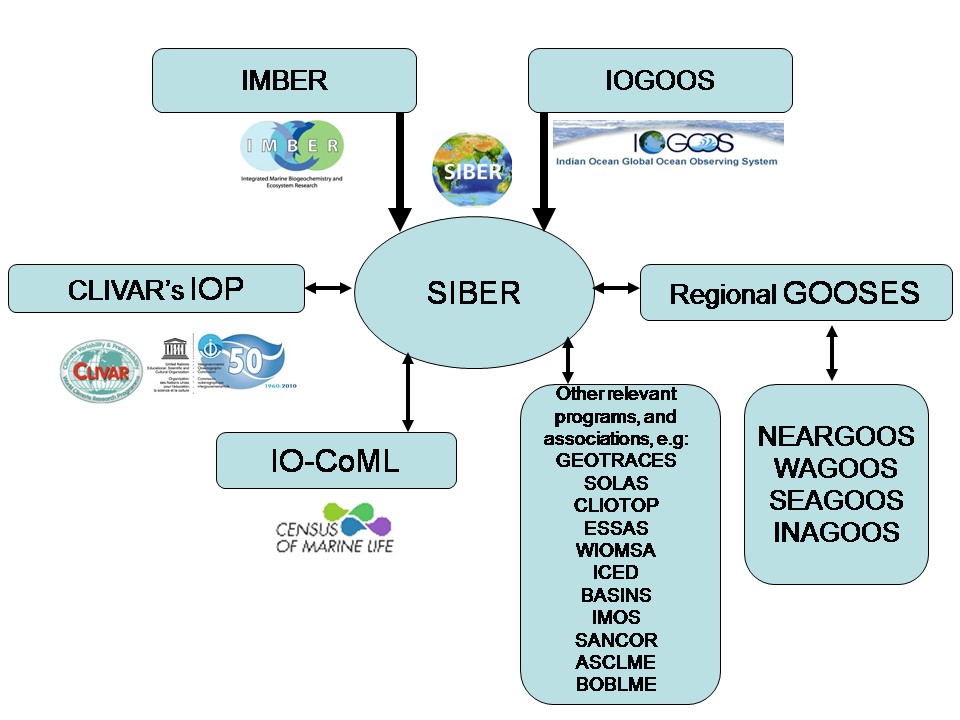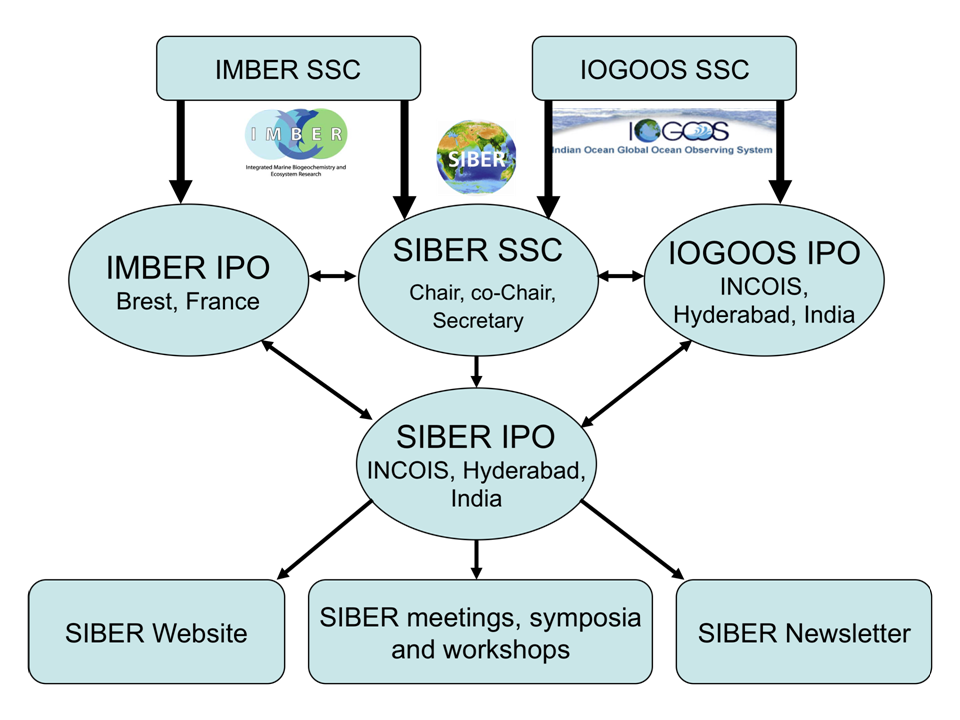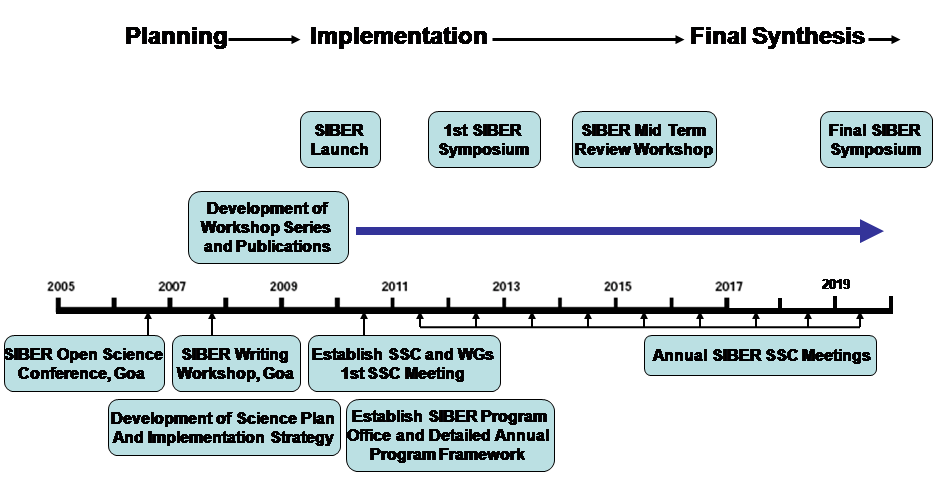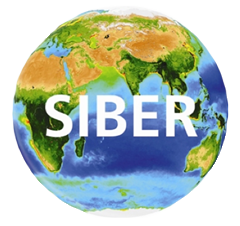ESSO - Indian National Centre for Ocean Information Services
(An Autonomous Body under the Ministry of Earth Sciences, Govt. of India)
About SIBER
SIBER is a basin-scale international programme with a concerted effort to develop an enhanced understanding of the Indian Ocean and its role in the global biogeochemical cycle. This programme is intended to provide scientific guidance and potential research focus to many countries, including Indian Ocean rim countries, interested in pursuing research activities in the Indian Ocean. The long-term goal of SIBER is to understand the role of the Indian Ocean in global biogeochemical cycles and the interaction between these cycles and marine ecosystem dynamics. The coordination and integration of Indian Ocean biogeochemical and ecosystem research through SIBER will advance our knowledge of this under-sampled basin and provide a major contribution to the understanding of how regional and global change may impact biogeochemical cycles and ecosystem function, not only in the Indian Ocean, but in the Earth System, creating a lasting legacy upon which future research can be built. The scientific findings will inform scientists in the international community and provide a focus for future research on important regional, basin-wide, and global issues. These findings will also provide policy makers with the sound scientific basis upon which to make decisions on the management of Indian Ocean ecosystems. SIBER will leverage and strengthen GOOS and IMBER by promoting coordinated international, multidisciplinary research in developed countries, and also human resources and infrastructure development in many developing Indian Ocean rim countries.
SIBER Linkages:
SIBER has been developed under the Integrated Marine Biogeochemistry and Ecosystem Research (IMBER) project, and the Indian Ocean GOOS (IOGOOS) program with support from the Intergovernmental Oceanographic Commission (IOC). SIBER coordinates with international research efforts such as the IMBER regional programs: Climate Impacts on Oceanic Top Predators (CLIOTOP), Ecosystem Studies of Sub-Arctic Seas (ESSAS) and Integrating Climate and Ecosystem Dynamics in the Southern Ocean (ICED), and the International Study of Marine Biogeochemical Cycles of Trace Elements and their Isotopes (GEOTRACES). SIBER also leverages several coastal and open ocean monitoring programs in the Indian Ocean. These include the CLIVAR- and GOOS-sponsored Indian Ocean Observing System (IndOOS), Australia's Integrated Marine Observing System (IMOS) and several regional GOOS programs. To develop a broader understanding of the Indian Ocean ecosystem, SIBER coordinates its efforts with the Western Indian Ocean Marine Science Association (WIOMSA), the South African Network for Coastal and Oceanic Research (SANCOR), the Agulhas and Somali Current Large Marine Ecosystems project (ASCLME) and the Bay of Bengal Large Marine Ecosystem project (BOBLME). As SIBER developed, it's collaborations, the number of participants, institutes and programs involved have also increased. SIBER provides the innovation, direction and coordination required to build a critical mass of multidisciplinary science and scientists to deliver this ambitious but achievable and globally important program.

Oversights and responsibilities:
The schematic diagram given below illustrates the relationships between the SIBER International Project Office (IPO) and IMBER and IOGOOS IPOs, along with oversight and responsibilities.

SIBER Timeline:
SIBER has built a multidisciplinary network of experts that will grow throughout the program. Through the SSC and WGs, SIBER will convene regular meetings, workshops, scientific sessions and ultimately scientific conferences as per the timeline given below. The annual SSC meetings help develop aspects of the work plan for each of the six SIBER themes. Subsequent events will build on these to develop new approaches and to advance the integration process. These events will occur at regular periods as noted in the timeline. Other activities such as direct research, development of online tools, publications and model development will take place throughout the program and will feed into the workshops and meetings as appropriate.





